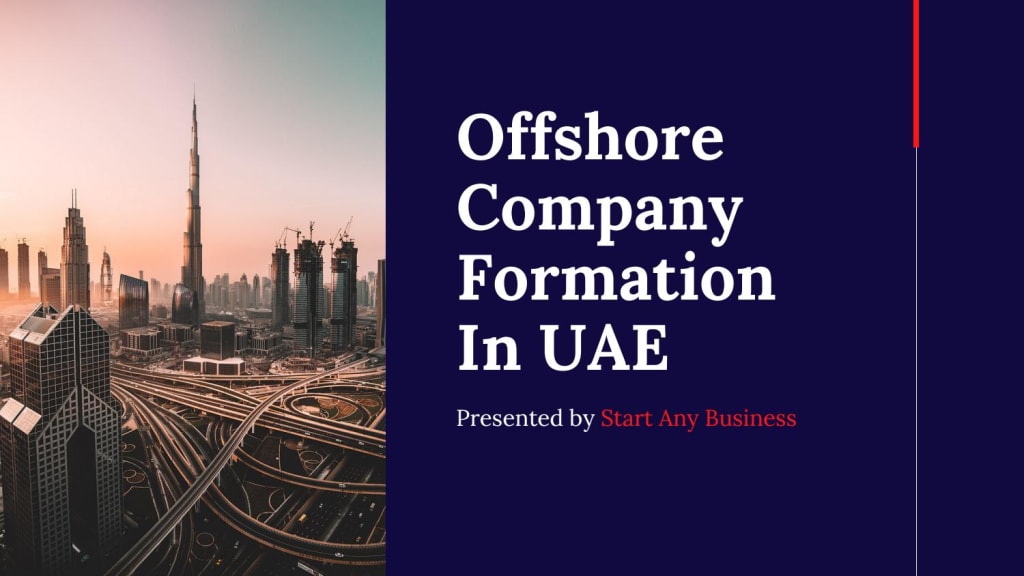The Significance of Comprehending the Addition Standard in Company Formation Offshore Processes
Steering with the complexities of offshore Company Formation requires a solid grasp of incorporation standards. These standards determine eligibility, affecting everything from governing compliance to tax advantages. Entrepreneurs have to comprehend just how jurisdictional elements play a role in this process. An absence of awareness can cause pricey blunders. As organizations discover these waters, the ramifications of their decisions end up being progressively substantial. What particular components should they prioritize to assure a successful endeavor?
Defining Incorporation Criteria for Offshore Company Formation
When taking into consideration the formation of an offshore business, it is necessary to establish clear inclusion criteria that direct the decision-making process. These standards function as a fundamental structure, guaranteeing that potential prospects for offshore Company Formation satisfy details needs. Normally, they may incorporate elements such as the company's nature, the geographical area of operations, and the legal structures readily available in various territories.
Incorporation standards assist improve the option process, allowing entrepreneurs to concentrate on viable choices that straighten with their calculated goals. These criteria can alleviate dangers associated with conformity, taxation, and regulative issues in foreign markets (company formation offshore). By defining these requirements, entrepreneur can effectively assess their motivations for offshore Company Formation and guarantee alignment with their long-term objectives. Inevitably, clearness in incorporation standards fosters notified decisions, promoting a smoother shift into the offshore company landscape
Secret Variables Influencing Qualification
Eligibility for offshore Company Formation pivots on a number of vital factors that shape an entrepreneur's capability to effectively browse this facility landscape. Initially, the person's economic standing is vital, as many jurisdictions require proof of enough funding to establish and keep a company. Second, the nature of the organization plays a considerable duty; specific industries may encounter constraints or extra laws in overseas settings. Third, the entrepreneur's residency standing can influence qualification, with some territories favoring neighborhood citizens or calling for particular authorizations for foreign nationals. In addition, conformity with anti-money laundering (AML) and know-your-customer (KYC) policies is essential, as failing to satisfy these standards can invalidate candidates. The entrepreneur's experience and knowledge in worldwide organization practices might affect their ability to accomplish the necessary needs. Comprehending these factors is crucial for any individual considering overseas Company Formation.
The Role of Jurisdiction in Inclusion Standard
Jurisdiction plays a crucial function in figuring out the inclusion requirements for overseas Company Formation, as various regions enforce special regulations and requirements. Each territory has its very own lawful structure that defines who can develop an overseas firm, the types of services permitted, and the requisite paperwork. For instance, some territories might require a minimum resources investment or certain certifications for supervisors and shareholders, while others could have much more forgiving requirements.
In addition, the reputation of a territory can influence the regarded legitimacy of a firm. Areas with reputable legal systems and durable governing structures often tend to draw in even more significant organization ventures, while others might be seen as tax havens or much less reliable. Comprehending these jurisdictional subtleties is important for possible entrepreneurs, as the chosen area can considerably affect operational efficiency, compliance commitments, and overall company success in the overseas landscape.
Tax Obligation Effects and Advantages
Tax effects play an essential duty in overseas Company Formation, affecting both immediate long-term approaches and monetary advantages. Understanding offered tax obligation incentives and making certain compliance with neighborhood guidelines are crucial for enhancing financial end results. By tactically maneuvering with these aspects, organizations can improve their functional performance and sustainability in international markets.
Tax Motivations Overview
While numerous business owners think about offshore Company Formation for different tactical reasons, understanding the tax obligation rewards included is critical for maximizing benefits. Offshore territories often provide desirable tax routines, consisting of reduced or no company taxes, which can significantly enhance profit margins. Some areas provide tax obligation holidays or exceptions for particular markets, motivating international financial investment. Additionally, specific nations may have double tax treaties, permitting organizations to stay clear of being taxed on the very same earnings in several territories. Tax motivations can also include lowered capital gains tax obligations and exceptions for international earnings. By extensively assessing these benefits, entrepreneurs can optimize their economic approach and assurance conformity with neighborhood regulations while effectively managing their international tax obligations.

Conformity With Rules
Offshore Company Formation supplies an array of tax obligation incentives, but understanding compliance with regulations is just as crucial for business owners. Conformity guarantees that services abide by regional regulations and global requirements, which can significantly impact their operational success. Failure to comply might result in severe fines, consisting of fines and loss of permit. Entrepreneurs must know the details tax obligation responsibilities in their chosen jurisdiction, as various regions offer differing advantages and demands. Furthermore, comprehending reporting criteria and anti-money laundering guidelines is vital to prevent lawful issues. By prioritizing conformity, local business owner can delight in the financial benefits of offshore development while keeping a authorized and credible presence in the worldwide market.
Long-term Financial Approaches
Developing effective long-term monetary approaches is crucial for entrepreneurs considering offshore Company Formation, specifically concerning tax ramifications and advantages. By selecting territories with desirable tax programs, organizations can significantly lower their tax worry and boost cash money circulation. Understanding local tax obligation laws, such as reductions, exemptions, and credit ratings, plays an important role in enhancing monetary efficiency. Additionally, strategies like profit repatriation and transfer rates can further improve tax obligation performance. Entrepreneurs need to likewise think about the prospective influence of global tax obligation treaties, which might supply useful terms for cross-border procedures. Eventually, a well-structured monetary approach, straightened with legal conformity and governing criteria, not just promotes lasting growth yet additionally supplies an one-upmanship in the global industry.
Regulative Compliance Considerations
Regulatory conformity is a crucial variable that must be meticulously browsed during the development of an offshore business, as failing to abide by local regulations can lead to substantial charges. Each territory has its own collection of policies controling Company Formation, including enrollment requirements, tax obligations, and reporting requirements. It is vital for entrepreneurs to extensively comprehend these regulations to ensure their procedures line up with legal expectations.

Strategic Organization Preparation for Offshore Ventures

Specifying Target Audience
Identifying the target market is a critical action in the critical organization preparation process for overseas ventures. This process involves evaluating potential clients and their choices, which informs item advancement and advertising and marketing approaches. By comprehending group variables such as age, place, and revenue, businesses can customize their offerings to meet certain demands. Additionally, examining market patterns and consumer behavior helps in recognizing voids in the market that check this the endeavor can manipulate. Efficient division of the target audience boosts the capacity for success by making sure that resources are allocated successfully. Eventually, a well-defined target audience promotes a focused technique, enhancing the possibility of achieving affordable advantage and long-lasting sustainability in the offshore service landscape.
Compliance With Rules

While guiding through the complexities of overseas Company Formation, conformity with policies becomes a critical variable in ensuring the venture's success. Complying with global guidelines and local legislations not just reduces lawful risks yet also boosts the integrity of the company. Companies should be cautious concerning tax obligation commitments, licensing demands, and reporting requirements particular to their picked jurisdiction. Additionally, comprehending anti-money laundering (AML) procedures and know-your-customer (KYC) guidelines is important for preserving functional integrity. Failing to abide can cause fines, reputational damages, and even dissolution of the company. Calculated service planning have to incorporate extensive compliance checks to safeguard versus potential challenges, inevitably developing a strong structure for growth and sustainability in the offshore arena.
Typical Pitfalls to Avoid in Offshore Company Formation
Many entrepreneurs neglect crucial details when forming an overseas firm, which can lead to substantial lawful and monetary repercussions. One usual mistake is failing to perform detailed research on jurisdictional regulations. Each offshore location has unique regulations that can affect business procedures. Business owners typically ignore the significance of selecting the ideal company structure, which can influence liability and taxes. Additionally, ignoring to establish a dependable local visibility, such as a signed up representative, can result in difficulties during governing conformity.
One more blunder involves not enough understanding of banking needs, which can result in account accessibility issues. Entrepreneurs might likewise overlook the significance of preserving precise records, which is essential for transparency and compliance. Inadequate legal advise can result in misinterpretation of the demands, subjecting the company to risks. By avoiding these risks, business owners can enhance their overseas Company Formation experience and assurance long-lasting navigate to these guys success.
Regularly Asked Inquiries
Can Foreign People Type Offshore Firms Without Neighborhood Collaborations?
The inquiry of whether foreign people can form offshore firms without regional collaborations is complicated. Normally, numerous jurisdictions enable this, yet certain guidelines and needs might vary significantly relying on the nation picked for unification.
What Documentation Is Required for Offshore Company Formation?
The documentation required for overseas Company Formation generally includes identification evidence, property address confirmation, business strategy, financial institution referral letters, and often extra governing kinds, depending upon the territory's certain legal demands and business framework selected. company formation offshore.
Exist Age Restrictions for Offshore Business Founders?
Age constraints for overseas company founders vary by territory. Normally, individuals have to go to the very least 18 years of ages to lawfully establish a firm. Some areas might have extra requirements or certain stipulations relating to age eligibility.
For how long Does the Offshore Company Formation Refine Generally Take?
The overseas Company Formation process usually takes anywhere from a few days to a number of weeks. Elements affecting duration include territory regulations, called for paperwork, and the efficiency of solution companies associated with the enrollment process.
Can I Change My Company's Incorporation Criteria After Development?
If changing a firm's incorporation criteria post-formation was possible, the private asked yourself. Generally, changes can be made, however this often needs adherence to details legal procedures and conformity with the guidelines of the territory included.
By defining these requirements, business owners can successfully assess their inspirations for overseas Company Formation and warranty placement with their lasting goals. Each territory has its very own lawful structure that defines who can establish an offshore company, the kinds of organizations permitted, and the requisite paperwork. While numerous business owners consider overseas Company Formation for various critical factors, comprehending the tax obligation motivations entailed is vital for maximizing benefits. Offshore Company Formation uses a range of tax obligation motivations, however recognizing conformity with guidelines is similarly essential for entrepreneurs. Establishing reliable long-lasting financial strategies is essential for business owners thinking about overseas Company Formation, particularly concerning tax obligation ramifications and benefits.